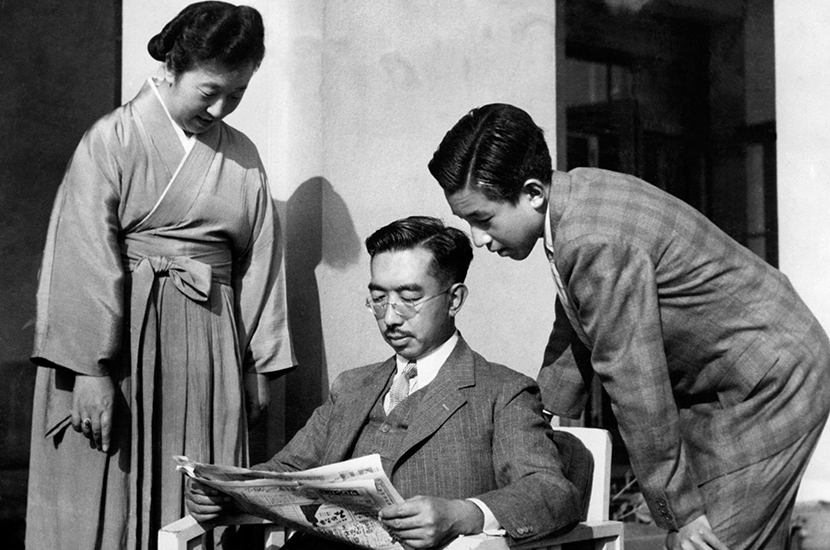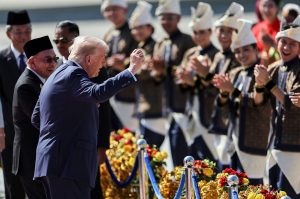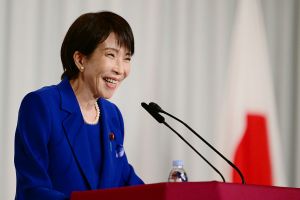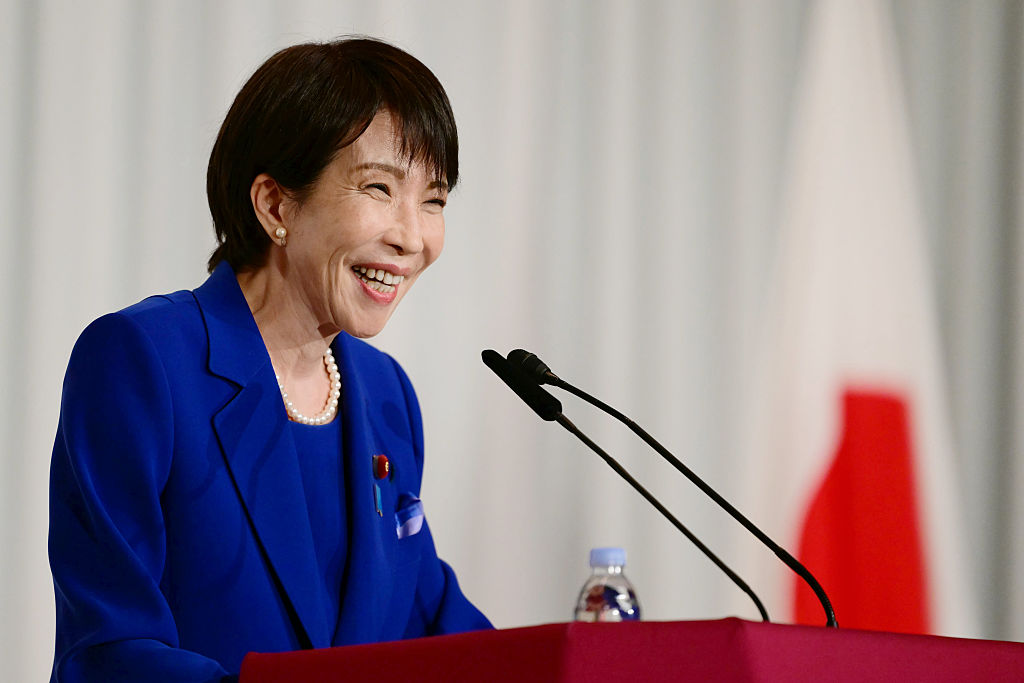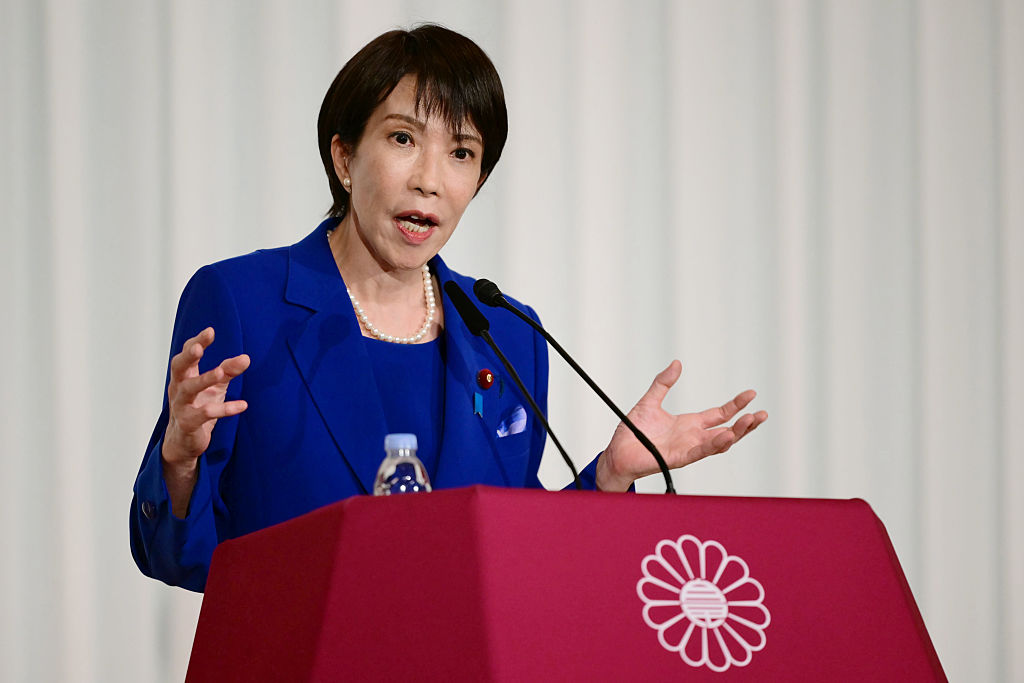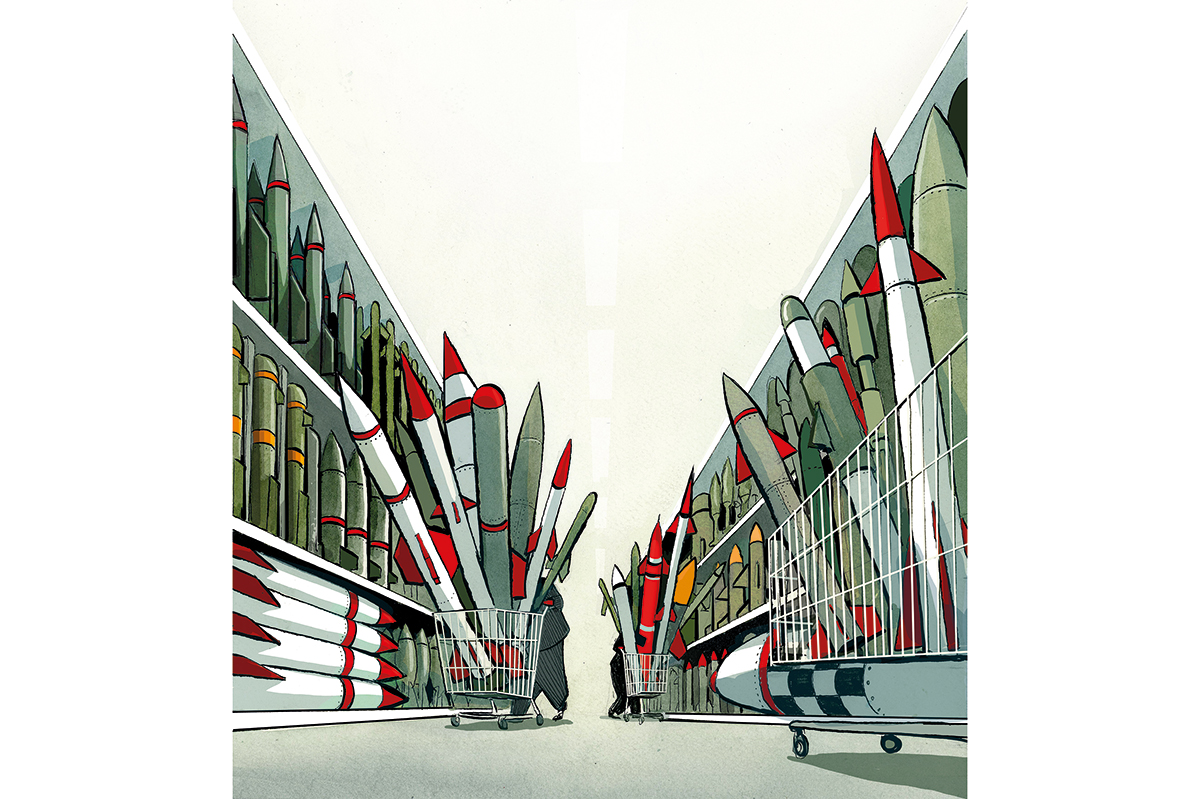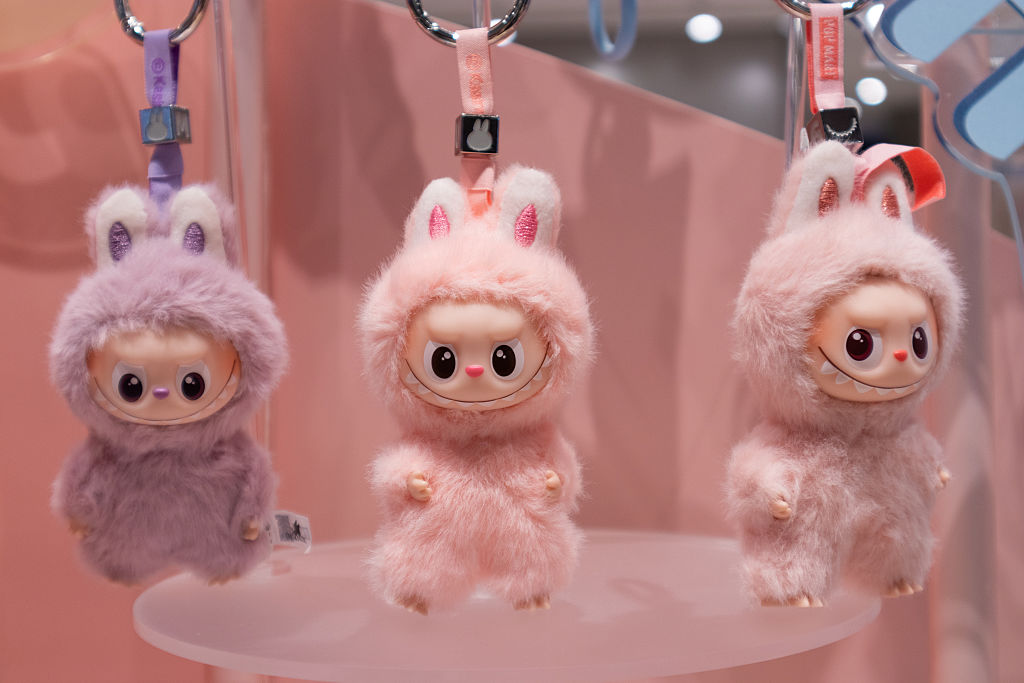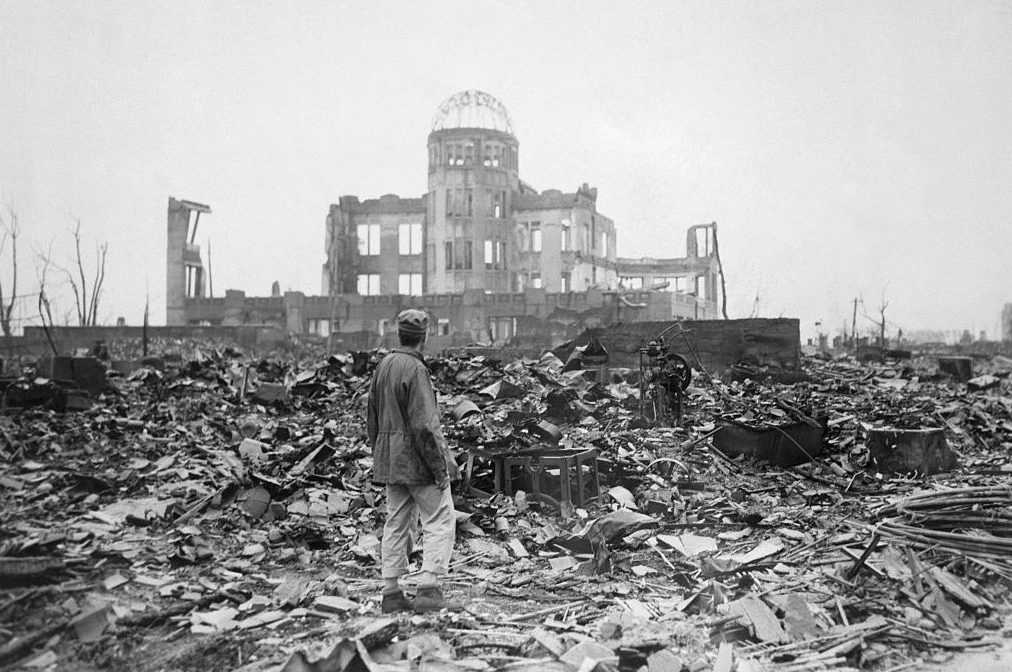This month the global media marked the 75th anniversary of the dropping of atomic bombs on Hiroshima and Nagasaki. The cities’ destructions were momentous indeed, but the coverage has squeezed out other memories of the Pacific War. Who remembers Japan’s genocidal campaign in China that killed more than 20 million people — thousands of them by poison gas and canisters containing plague and typhus? Or the murder of 35 percent of the 200,000 soldiers and civilians held in Japanese prisoner-of-war camps that meted out unspeakable cruelties? Certainly not the BBC, which failed to put Hiroshima and Nagasaki into any kind of historic context.
For example, a BBC article on the anniversary said that ‘critics have said that Japan was already on the brink of surrender’. This blatant untruth was left hanging. Even after the obliteration of Hiroshima and Nagasaki, vice admiral Takijiro Onishi, the main architect of the kamikaze campaign, burst into a war council meeting to declare: ‘If we are prepared to sacrifice 20 million Japanese lives in a special [suicide] attack effort, victory will be ours.’ The Japanese military’s fanatical death cult was even better illustrated by army chief of staff, General Korechika Anami, who pleaded: ‘Would it not be wondrous for the whole nation to be destroyed like a beautiful flower?’
Neither is it ever pointed out that Japan had, under the aegis of Dr Yoshio Nishina, a protégé of the great Danish particle physicist Niels Bohr, designed if not yet built its own nuclear weapon. As one of Nishina’s colleagues said: ‘If we’d built the bomb first, of course we would have used it.’
Before the atomic bombings, any peace negotiations being conducted by Japan through intermediaries had in any case fallen a long way short of the unconditional surrender demanded in the Potsdam Declaration issued by Harry Truman, Winston Churchill and Chiang Kai-shek. Meanwhile, the Japanese army was determined to continue the fight and was planning a defense of the country’s main islands with 12,000 kamikaze pilots, 2.5 million troops and 28 million civilians armed with bamboo spears. Ultimately it was only the intervention of Emperor Hirohito, commander-in-chief of the army, who, thanks to the atomic bomb, forced the military to surrender and thereby saved the lives of close to a million Allied troops (including 100,000 British), not to mention the 140,000 prisoners of war who Japan planned to murder if their country was invaded. Not that it counted much in President Truman’s decision, but dropping the atomic bomb also spared the lives of an estimated five to 10 million Japanese.
In August 1945, the odds must have been that Hirohito would be tried as a ‘Class-A’ war criminal. It was an outcome called for by Australia, Britain and 70 percent of the American public. That this did not happen was almost entirely due to Gen. Douglas MacArthur, whose arrival in Japan on August 30, 1945 is arguably a more historically significant anniversary than the date of the bombing of Hiroshima. On VJ day, August 15, Truman had appointed MacArthur as Supreme Commander for the Allied Powers (SCAP). He became Japan’s quasi-emperor for the next five years. As he boasted to a US Senate committee in 1951: ‘I had not only the normal executive authority such as our own president has, but I had legislative authority. I could by fiat issue directives.’
It seems MacArthur arrived in Japan with the fixed idea that Hirohito must survive. He ignored the fact that, under the Meiji Constitution of 1889, the emperor was not a power-less constitutional monarch, but possessed an absolute authority with an army and navy that reported directly to him. Belying the post-war myth that he was simply a marine biologist specializing in hydrozoa (small jelly-fish), Hirohito operated a war room under the Imperial Palace, gave instructions to his commanders and rewarded the head of medical experimentation, Dr Shiro Ishii (Japan’s equivalent of the Germans’ Josef Mengele), with a special service decoration.
Notwithstanding the evidence, MacArthur came to the conclusion that Hirohito should not be charged as a war criminal. His logic was that the emperor, a living god, was so central to the psyche of the Japanese people that his removal would make the country ungovernable. MacArthur’s psychological warfare adviser, Gen. Bonner Fellers, advised that it would be disadvantageous ‘to put on trial the very emperor who is co-operating with…and facilitating the smooth administration of the occupation’. Their fears were grossly overstated. By August 1945 ordinary Japanese had grown hostile to the privations of a war economy which had been in operation since the start of the Second Sino-Japanese War in 1933. After Hirohito’s infamous phony ‘peacenik’ surrender speech, as if by the flick of a switch, the Japanese moved from extreme militarism to extreme passivity. The next day, the legendary Japanese film director Akira Kurosawa recalled that in Tokyo: ‘The people in the shopping streets were bustling about with cheerful faces as if preparing for a festival.’
MacArthur’s decision to protect Hirohito and his family from prosecution had deleterious consequences. The first of these was to undermine the legal credibility of the Tokyo War Crimes Tribunal whose terms of reference were largely directed by MacArthur. John Dower concludes in Embracing Defeat, his seminal book on post-war Japan, that the cover-up orchestrated by MacArthur turned the issue of war responsibility ‘into a joke’. Worse still, MacArthur’s selection of who to prosecute was entirely arbitrary; the evil torturer Dr Ishii was spared in return for the data accumulated from live vivisection and other medical experiments on prisoners at Unit 731, a concentration camp near Harbin in Manchuria.
By giving a free pass to Hirohito, MacArthur undermined any sense of Japanese war guilt. In sharp contrast to modern Germany, in Japan there is no sense of mea culpa for the egregious genocidal acts of their military in the second world war. Japanese textbooks omit the brutalization of Asia and instead describe it as a liberation from colonialism, ignoring Japan’s plans to create an autarkic empire. These textbooks blame the war on US imperialism and the American embargo on oil exports to Japan.
The perversion of the Pacific War narrative clearly contributed to the rise of the ultranationalist government of Prime Minister Shinzo Abe, whose grandfather, Nobusuke Kishi, was imprisoned as a Class-A war criminal. Abe, along with 40 current and former ministers — most from the ruling Liberal Democratic party — and several chief justices of the Supreme Court, belongs to Nippon Kaigi, a 38,000-strong organization dedicated to the restoration of the imperial constitution, the propagandization of Japan’s fake wartime history and the denial of the Chinese holocaust. Abe even survived the shocking revelation that his wife was making financial donations to Moritomo Gakuen, an extreme right-wing elementary school where the students still recite the Imperial Rescript on Education, the 19th-century edict which glorifies the Japanese Empire, and which was an intellectual bedrock of Hirohito’s fascist pre-war regime.
***
Get a print and digital subscription to The Spectator.
Try a month free, then just $7.99 a month
***
But today’s ultra-nationalist emperor-worship does not only reflect the hidden views of a political elite. In the 1980s, I saw Hirohito in person on two occasions — both at the Tokyo basho, one of Sumo wrestling’s main tournaments. I heard with incredulity the roar of approval that greeted the entrance of this tiny, wizened figure, the godhead for whom more than 30 million people died in the Pacific War.
Not surprisingly, attitudes to Japan within Asia have been consistently negative, particularly in those countries that suffered most from Japan’s wartime depredations. Pew Research surveys have shown that Abe has an 85 percent negative rating in South Korea. In the West, however, Japan’s ultra-nationalist government barely registers on the woke ‘moral-o-meter’. Noticeably, the selective moralists at the BBC and the Guardian, who track President Trump’s every move with disapproval, made not a mention of the ultra-right-wing Japanese government in their recent reporting of Britain’s expected closing of a trade deal with Abe’s administration.
This is in no way a recommendation not to deal with Japan. A free trade deal with Japan, and for that matter any country, whatever its politics, should be pursued without moral consideration. Our politicians’ fiduciary duty is to champion the economic interests of the voters. Diplomatic support for Japan too is a necessity for the West, which needs it as a military bulwark against China’s rapidly advancing financial and military power. The British government should do business and avoid counterproductive moral grandstanding. Nevertheless, we have a free media that has license to highlight the repellent nature of Japan’s government; it should do so with gusto. Meanwhile, as a country, we should sup with Shinzo Abe’s government — but use a very long spoon.
Francis Pike is the author of Hirohito’s War: The Pacific War 1941-1945. This article was originally published in The Spectator’s UK magazine. Subscribe to the US edition here.



